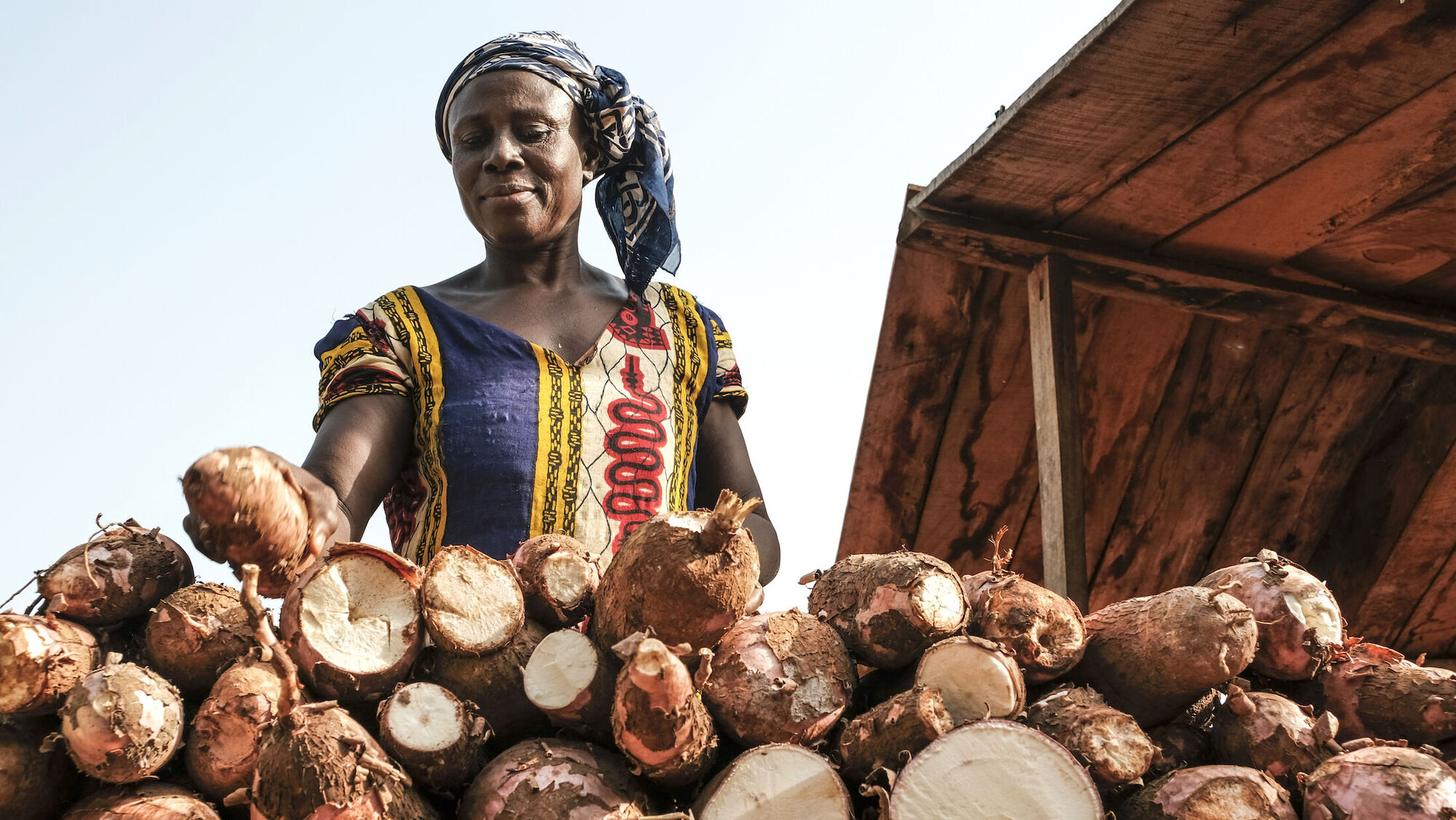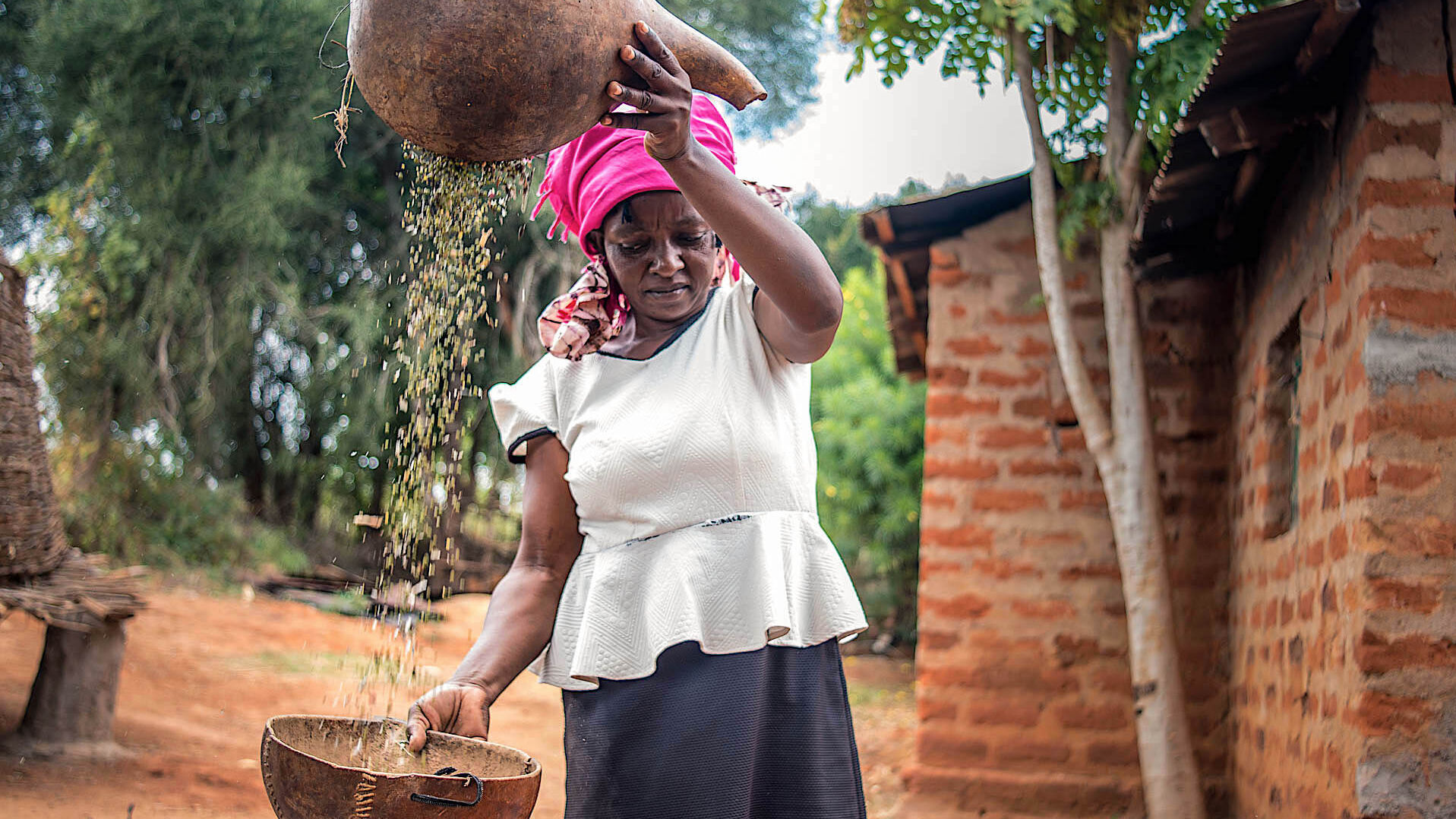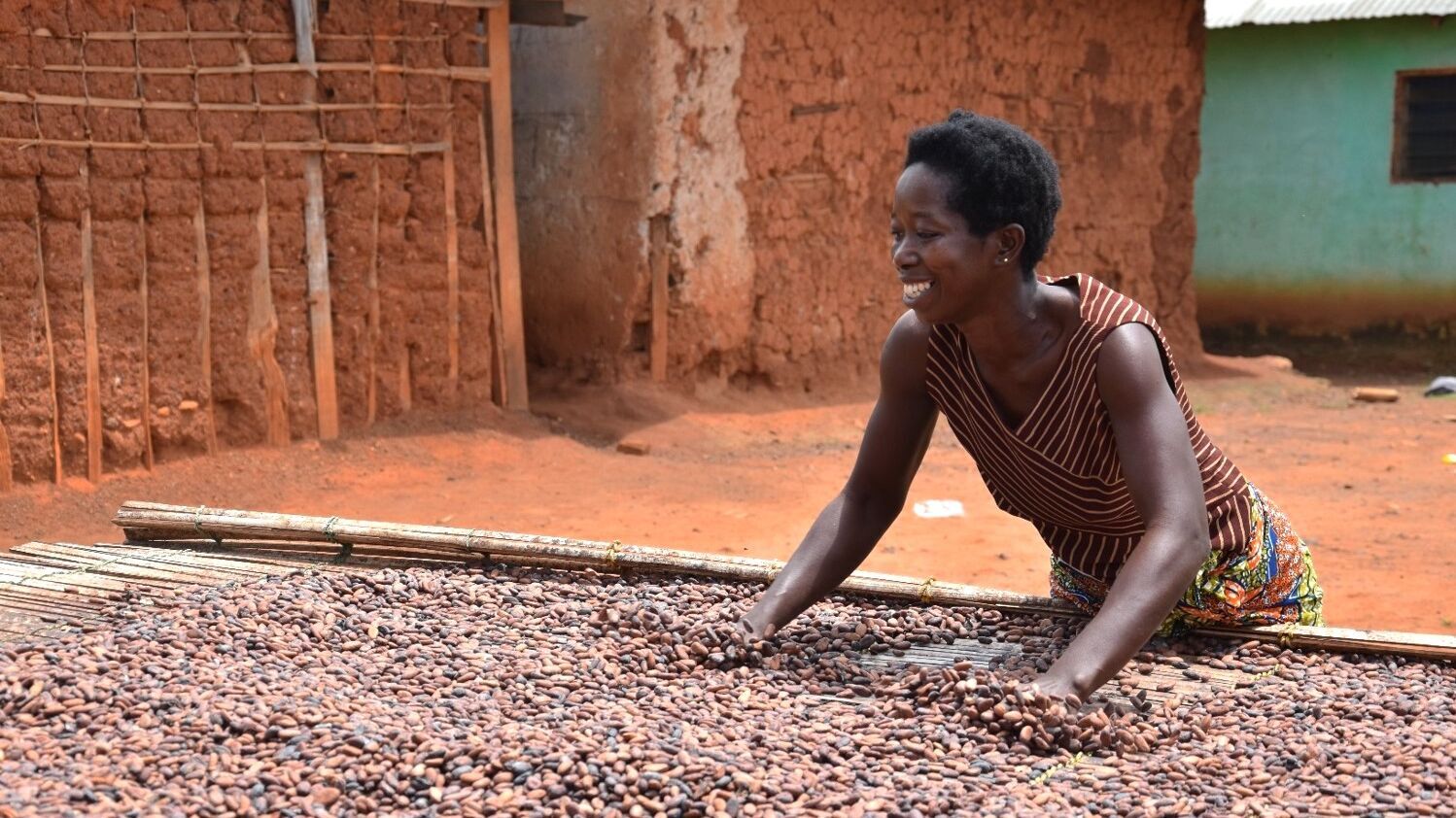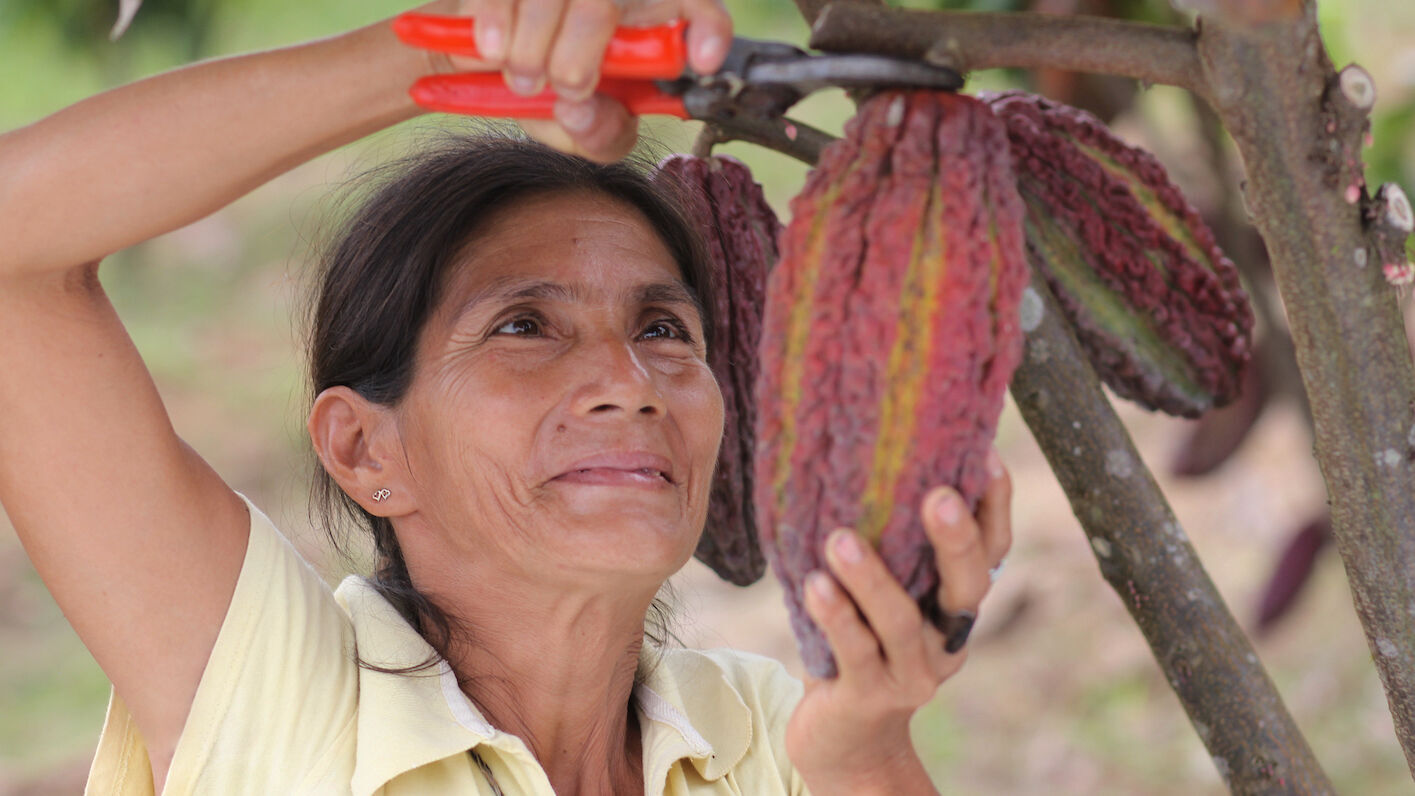Gender equality
Strengthening the societal position and rights of women is key to solving many challenges in the cocoa sector. The members of the Swiss Platform for Sustainable Cocoa are therefore specifically committed to gender equality.
What is it about?
Women in agriculture in general face various obstacles and constraints that their male counterparts do not. Women make up a significant proportion of farm managers and workers and are involved in most cocoa processing steps - from preparing the seedlings to selling the dried beans. However, their essential role is often not recognised or renumerated accordingly.
Discrimination against women in the cocoa sector
Women are routinely discriminated against in key areas of agriculture, such as access to training and education, financial services, agricultural inputs and land ownership. Moreover, they often lack decision-making power at the household, community and policy level. As a result, women earn lower incomes, have less financial literacy and typically face greater difficulties in being economically independent to sustain their livelihoods. In addition, women are often the most severely affected by the impacts of climate change, especially if they are responsible for the supply of food in their households, as access to water, food and firewood is becoming increasingly difficult and labour-intensive.
Measures to empower women
Women’s empowerment is therefore crucial for the sustainable development of the sector, leading to improved household food security, better education, better child development and strengthening of cocoa-producing communities. This can be supported through various gender-transformative activities:
- Targeted support for women through education and training can increase cocoa yields, which has a positive income on household income.
- Land tenure regulation and access to formal financial services, such as credit, leads to higher savings and higher (re)investment in farms and longer-term and more sustainable production methods.
- The active participation of women in decision-making at local and national levels leads to better representation of women and their specific needs and realities.
The goals of the Cocoa Platform according to the Roadmap 2030
As a key transversal topic, gender equality is given special importance in the Roadmap 2030. The Cocoa Platform plans to develop a gender strategy by 2023. This is to ensure that gender aspects are comprehensively taken into account in the planning, implementation and monitoring of programmes and projects. In particular, the Cocoa Platform aims to promote women's access to better training, formal employment, land, markets, education and financial services. In joint projects, it is therefore important to systematically include gender aspects and to be aware of and consider social norms, legal requirements, gender-specific opportunities and potential risks.




